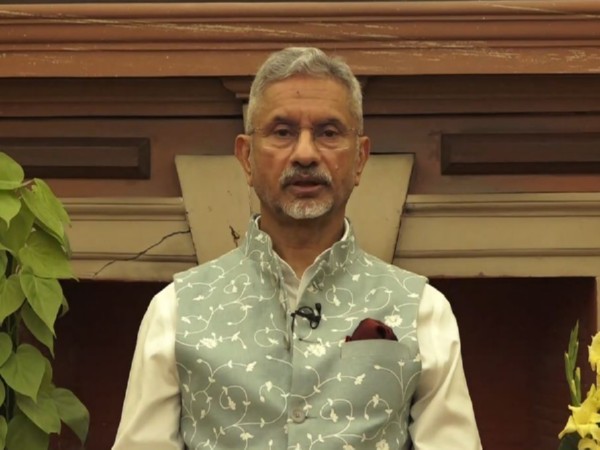Quad countries re-affirm commitment to work for open, inclusive Indo-Pacific region
Oct 06, 2020

Tokyo [Japan], October 6 : The United States, Australia, India and Japan on Tuesday re-affirmed their commitment to work towards a "open, inclusive and resilient Indo-Pacific" while exchanging their views during the second foreign ministers' meeting of the Quadrilateral grouping that began on Tuesday.
During the opening remarks at second Quad Ministerial Meeting here, Japanese Foreign Minister Toshimitsu Motegi asserted that a free and open Indo-Pacific initiative plays a major role in achieving the goal of having domocracy, rule of law and free economy in the region.
"In recent years the existing international order is being challenged in various areas. The outbreak of COVID-19 is accelerating such trend. Our four nations believe in common fundamental values such as democracy, rule of law and free economy. We believe in having a regional responsibility, share the goal of stregthening a rules-based free and open international order. It is indeed the free and open Indo-Pacific initiative that plays a major role towards the achievement of this goal," Motegi said.
He further said this vision is being embraced by many countries as he found out during his recent visit to ASEAN countries and Europe.
"Today this vision is embraced by many nations. Infact upon my visit to the ASEAN countries last month and my visit to Europe last week, commitments towards the Indo-Pacific was demonstrated very clearly. The importance of this vision lies in the fact that many countries that share values have come together to promote this initiative and as a result the vision is being realised at a larger scale," he added.
US State Secretary Michael Pompeo emphasised on the need to collaborate to protect the people and partners from the Chinese Communist Party's (CCP) exploitation, corruption and coersion.
"Last year when we met we could not imagine this crisis. The situation was made worse by the CCP's cover-up. The regime's authoritarian leaders silenced the very brave Chinese citizens who attempted to raise the alarm," said Pompeo.
He further said the US "stands in support with each one of you" as the world works to win over the "horrible pandemic and rebuild economies together".
Calling out the urgent need for cooperation among countries, the State Seceratry said, "It is more critical now than ever that we collaborate to protect our people and partners from the CCP's exploitation, corruption and coersion."
In continuance with Pompeo's call for immediate need of cooperation against China, Australian Foreign Minister Marise Payne said the Quad has a positive agenda, which is to promote an open, inclusive and resilient Indo-Pacific.
"We believe in a region governed by rules not power. We believe in the fundamental importance of individual rights and in a region in which disputes are resolved in accordance with international law and we believe in regional security and recovery from COVID-19 supports sovereign choices for the countries of the Indo-Pacific," she said.
During the meeting, the Australian Foreign Minister asserted that her country has "no more important partners than Japan, the US and India.
"Australia is supporting the regions' economic recovery, strenthging health security, promoting access to safe and effective COVID-19 vaccines. In these efforts Australia has no more important partners than Japan, US and India. Today we will exchange strategic assessments and agree to support our aligned interests including health cooperation, maritime security, critical minerals and technologies, countering disinformation and humanitarian assistance," she added.
Similarly, External Affairs Minister S Jaishankar asserted that the events of this year have clearly demonstrated how "imperative it is for like-minded countries to coordinate responses to the various challenges that the pandemic has brought to the fore".
"As vibrant and pluralistic democracies with shared values, our nations have collectively affirmed the importance of maintaining a free, open and inclusive Indo-Pacific. We remain committed to upholding the rules-based international order, underpinned by the rule of law, transparency, freedom of navigation in the international seas, respect for territorial integrity and sovereignty and peaceful resolution of disputes," he said.
"Our objective remains to advance the security and the economic interests of all countries having legitimate and vital interests in the region. It is a matter of satisfaction that the Indo-Pacific concept has gained increasingly wider acceptance. The Indo-Pacific Ocean's Initiative that we tabled at the East Asia Summit last year is a development with considerable promise in that context," he added.



















